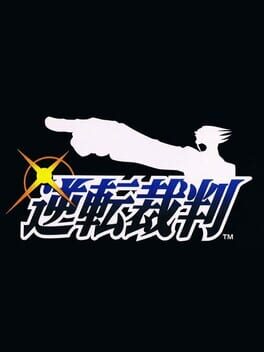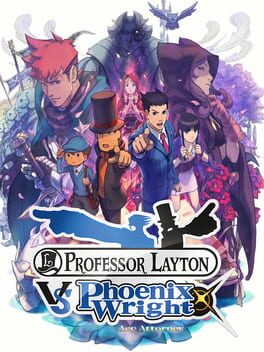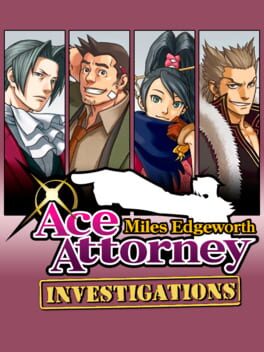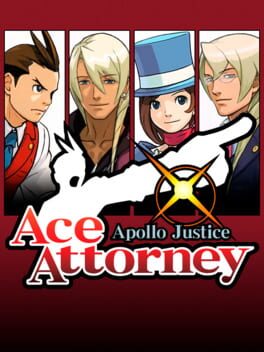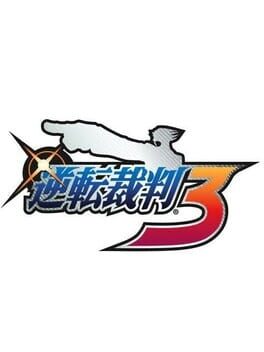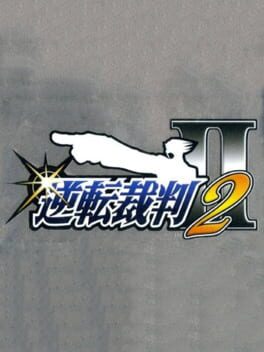

Gyakuten Saiban is a visual novel adventure game developed by Capcom Production Studio 4 and published by Capcom. It was released in 2001 for the Game Boy Advance. The story follows Phoenix Wright, a rookie defense attorney who attempts to have his clients declared "not guilty". Among other characters are Phoenix's boss, Mia Fey; his assistant and Mia's sister, Maya; and prosecutor Miles Edgeworth. The player controls Phoenix through two sets of sections: investigations and courtroom trials. During investigations they gather information and evidence. During trials they cross-examine witnesses, and answer questions from the judge, the prosecutor, and the witnesses. The story is split into four cases.
Also in series
Reviews View More
I last played through the original Ace Attorney trilogy (plus a handful of the other ones) back in 2015, a bit before I started writing reviews or properly cataloguing what I played in any respect. My partner, however, has never played them before. She loves visual novels, and she’s really wanted to play more of them together, so we decided to play through the original Ace Attorney trilogy together~. However, while she’s playing the trilogy via her 3DS, I opted to take the weirder route and play the GBA originals, and this is the first of those~. There are some meaningful differences between this original version and its DS counterpart, so I opted to title it with the Japanese title here rather than the English port’s title for the sake of clarity. I really have to just guess at how long it took me to beat it, as this game doesn’t keep track of playtime at all, but I reckon it took me about 15 or so hours to play through all four cases. I played the Japanese version of the game on real hardware, but via my GameCube’s GameBoy Player rather than a normal GameBoy Advance.
Gyakuten Saiban is the first story of the now famous video game lawyer, Phoenix Wright (or, as he’s known in Japanese, Naruhodo Ryuuichi). This game follows him through his first six months or so as a lawyer along with his assistant Ayasato Mayoi (aka Maya Fey) and his rival Mitsurugi Reiji (aka Miles Edgeworth), and the trials and tribulations (pun intended :b) that ensue as a result. As far as its greater themes go, the ones more delivered in the game’s text revolve around never giving up and believing in yourself regardless of how desperate your situation is. Then there’s also the overriding theme of the setting, which is one very heavily inspired by the real life realities of the justice system in Japan, that being that the justice system is one nigh explicitly constructed as a system of performative punishment and cruelty rather than one concerned with finding any modicum of “truth” or “justice”.
Even beyond more narrative analysis-type stuff like that, it’s a really exceptionally written game! This is a series rightfully famous for the excellent quality of its English localization, and the original Japanese works fantastically too. Fun and funny characters carrying out genuinely touching and dramatic stories. It’s kinda nuts to even think that this is the main writer’s first go at game writing simply because it’s such a well put together and paced story. It’s a very cold take to say that the Ace Attorney series is really well written, of course, but it’s something that’s absolutely worth repeating due to the sheer quality of the text at hand. Ace Attorney is a really well written series, and this first entry really knocks it out of the park as a great story-focused adventure game.
As far as the mechanics go, there are likely few people who’d be reading this who would be unfamiliar with them, but such assumptions are never how I try to write these little essays. The gameplay of the game’s four cases (five cases in later releases) is roughly divided into two sections. First, you have the investigation sections. These are somewhat adventure game puzzle-type sections where you go around crime scenes and talk to characters to gather information and evidence. Sometimes you’ll need to use the cursor to investigate bits of the background or present evidence to characters to get them to comment on them, but these are sections that are ultimately linear in their design. There’s a right way to do them, and all doing things the “wrong” way will accomplish is getting you stuck until you find the right way forward.
The other half of the game are the courtroom trials, where you’ll cross examine witnesses and present evidence to try and catch the contradictions in their statements to help prove your client innocent. This is where you could say the real “gameplay” of the series comes in. Keeping everything that’s happened in the case, or at least that which relates to the testimony at hand, will be invaluable in these sections, as the game isn’t terribly hard overall, but getting good at seeing the logical connections between the evidence and testimony is a skill that you’ll develop over time nonetheless. It’s great fun if you’re a fan of logic puzzles, and they’re very fun stories even if you just look up all the solutions online.
Presenting evidence that doesn’t actually prove anything will earn you a penalty, and it’s five strikes and you’re out. A really nasty feature of this GBA original is that, should you run out of penalties and game over, you don’t return back to the start of the current trial as you do in later versions of the game. If your client is found guilty, you start the WHOLE case over from the start. These are not very short trials, with the later two being quite long even if you know exactly what to do, so that’s a pretty brutal penalty, and I’m glad this game is the only one in the series to do it. These games have really fun pacing and well written stories, and needing to button mash your way through potentially literally hours of prior investigations and trials just to get back to the third day’s trial you game over’d on REALLY sours that experience.
Presentation-wise, this is another factor that the game absolutely gets a slam dunk on. This is a quite early GBA game, coming out roughly half a year after the console itself did, so the music, while good in this original iteration (especially the Tonosaman (aka the Steel Samurai) theme~), is clearly limited by the GBA’s own hardware as well as the industry’s general unfamiliarity with it at this early stage in the GBA’s life. The graphics, on the other hand, kick absolute butt. Being a visual novel, the presentation is kind half the game here, and it’s a factor that this game does not neglect the slightest bit. From main characters to minor characters, from the investigation field to the court room, everyone you meet is brought to life with larger than life expressions that make the whole cast a really memorable one. The way the game delivers text is also very clever, utilizing text size, scroll speed, occasional auto-progression, and even screen shaking to compensate just about as well as you possibly could for a lack of voice acting. If anyone would ever need evidence of how visual novels can be meaningfully different from just reading a book or watching an anime, this is a very stellar example of just how well you can deliver a narrative like only a VN (i.e. an interactive experience) can.
Verdict: Highly Recommended. While I might not necessarily recommend this particular version quite as highly as other versions (due to just how nasty that aforementioned game over mechanic is), this is a really stellar visual novel/adventure game. While Capcom certainly does love porting games simply for the sake of it, this is a game that has absolutely deserved to have been ported to death and back. It’s as stellar now as it was when it came out over 20 years ago, and it’ still a load of fun to play even if you’re like me and you aren’t generally a huge fan of visual novels.
Gyakuten Saiban is the first story of the now famous video game lawyer, Phoenix Wright (or, as he’s known in Japanese, Naruhodo Ryuuichi). This game follows him through his first six months or so as a lawyer along with his assistant Ayasato Mayoi (aka Maya Fey) and his rival Mitsurugi Reiji (aka Miles Edgeworth), and the trials and tribulations (pun intended :b) that ensue as a result. As far as its greater themes go, the ones more delivered in the game’s text revolve around never giving up and believing in yourself regardless of how desperate your situation is. Then there’s also the overriding theme of the setting, which is one very heavily inspired by the real life realities of the justice system in Japan, that being that the justice system is one nigh explicitly constructed as a system of performative punishment and cruelty rather than one concerned with finding any modicum of “truth” or “justice”.
Even beyond more narrative analysis-type stuff like that, it’s a really exceptionally written game! This is a series rightfully famous for the excellent quality of its English localization, and the original Japanese works fantastically too. Fun and funny characters carrying out genuinely touching and dramatic stories. It’s kinda nuts to even think that this is the main writer’s first go at game writing simply because it’s such a well put together and paced story. It’s a very cold take to say that the Ace Attorney series is really well written, of course, but it’s something that’s absolutely worth repeating due to the sheer quality of the text at hand. Ace Attorney is a really well written series, and this first entry really knocks it out of the park as a great story-focused adventure game.
As far as the mechanics go, there are likely few people who’d be reading this who would be unfamiliar with them, but such assumptions are never how I try to write these little essays. The gameplay of the game’s four cases (five cases in later releases) is roughly divided into two sections. First, you have the investigation sections. These are somewhat adventure game puzzle-type sections where you go around crime scenes and talk to characters to gather information and evidence. Sometimes you’ll need to use the cursor to investigate bits of the background or present evidence to characters to get them to comment on them, but these are sections that are ultimately linear in their design. There’s a right way to do them, and all doing things the “wrong” way will accomplish is getting you stuck until you find the right way forward.
The other half of the game are the courtroom trials, where you’ll cross examine witnesses and present evidence to try and catch the contradictions in their statements to help prove your client innocent. This is where you could say the real “gameplay” of the series comes in. Keeping everything that’s happened in the case, or at least that which relates to the testimony at hand, will be invaluable in these sections, as the game isn’t terribly hard overall, but getting good at seeing the logical connections between the evidence and testimony is a skill that you’ll develop over time nonetheless. It’s great fun if you’re a fan of logic puzzles, and they’re very fun stories even if you just look up all the solutions online.
Presenting evidence that doesn’t actually prove anything will earn you a penalty, and it’s five strikes and you’re out. A really nasty feature of this GBA original is that, should you run out of penalties and game over, you don’t return back to the start of the current trial as you do in later versions of the game. If your client is found guilty, you start the WHOLE case over from the start. These are not very short trials, with the later two being quite long even if you know exactly what to do, so that’s a pretty brutal penalty, and I’m glad this game is the only one in the series to do it. These games have really fun pacing and well written stories, and needing to button mash your way through potentially literally hours of prior investigations and trials just to get back to the third day’s trial you game over’d on REALLY sours that experience.
Presentation-wise, this is another factor that the game absolutely gets a slam dunk on. This is a quite early GBA game, coming out roughly half a year after the console itself did, so the music, while good in this original iteration (especially the Tonosaman (aka the Steel Samurai) theme~), is clearly limited by the GBA’s own hardware as well as the industry’s general unfamiliarity with it at this early stage in the GBA’s life. The graphics, on the other hand, kick absolute butt. Being a visual novel, the presentation is kind half the game here, and it’s a factor that this game does not neglect the slightest bit. From main characters to minor characters, from the investigation field to the court room, everyone you meet is brought to life with larger than life expressions that make the whole cast a really memorable one. The way the game delivers text is also very clever, utilizing text size, scroll speed, occasional auto-progression, and even screen shaking to compensate just about as well as you possibly could for a lack of voice acting. If anyone would ever need evidence of how visual novels can be meaningfully different from just reading a book or watching an anime, this is a very stellar example of just how well you can deliver a narrative like only a VN (i.e. an interactive experience) can.
Verdict: Highly Recommended. While I might not necessarily recommend this particular version quite as highly as other versions (due to just how nasty that aforementioned game over mechanic is), this is a really stellar visual novel/adventure game. While Capcom certainly does love porting games simply for the sake of it, this is a game that has absolutely deserved to have been ported to death and back. It’s as stellar now as it was when it came out over 20 years ago, and it’ still a load of fun to play even if you’re like me and you aren’t generally a huge fan of visual novels.
